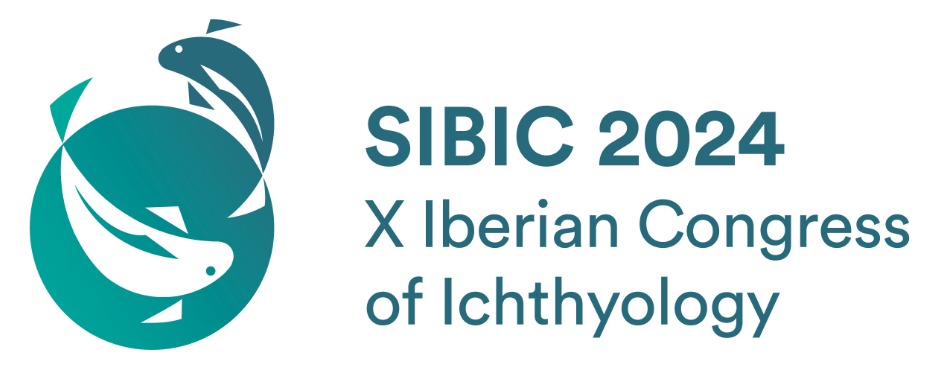
Eric Rochard: How science supports management actions on diadromous fish (18th June 11:15h Tortosa)
Senior researcher in the area of Aquatic Ecosystems and Global Changes at the French National Research Institute for Agriculture, Food, and Environment, (Bordeaux).
His works focus on the understanding of the global change impacts on aquatic ecosystems. He has strong interests in the ecology and conservation of diadromous fish such as shads or sturgeons. His current research is conducted in close cooperation with ecotoxicologists and focuses on the effects of water quality on fish embryos.

Marie-Laure Acolas: Sturgeon species recovery in Western Europe: focus on A. sturio & A oxyrinchus (18th June 11:45h Tortosa)
Researcher at the Frenc National Research Institut for Agriculture, Food, Environment (Bordeaux).
She is specialized in Fish Ecology and Conservation Biology. Her research is mostly focus on conservation of endangered species, migration behavior of anadromous fishes, aquaculture practices within the frame of stocking program and influence of environmental factors on fish life history traits.

Fernando Cobo: Shads (Alosa alosa & Alosa fallax) in the Atlantic: status and tendences (18th June 12:15h Tortosa)
Full professor at the Department of Zoology, Genetics and Physical Anthropology at University of Santiago de Compostela.
He has promoted and also was the director of the Hydrobiological Field Station “Encoro do Con” for over 20 years. His work focuses on multiple research themes within freshwater ecology including taxonomy and biology of macroinvertebrates and fish, particularly the ecology of diadromous fish, biological invasions and other water environmental issues of emerging interest such as the toxicity and control of freshwater cyanobacteria.

Teresa Ferreira: Fishes in a changing world (19th June 10:00h Vic)
Full professor at the Department of Natural Resources, Environment and Landscape, Technical University of Lisbon.
Her research interests primarily focus on several freshwater areas including biological monitoring, fish community ecology, fish habitat requirements, and riparian ecology.

Emili García-Berthou: Fish invasions in Iberian inland waters: recent advances and future challenges (19th June 14:30h Vic)
Professor of Ecology at the Institute of Aquatic Ecology, University of Girona (Catalonia, Spain).
His lab is focused on studying the impacts of global environmental change on freshwater fish, with a particular emphasis on invasive alien species.

Ignacio Doadrio Villarejo: The Red book on Iberian fishes: past and future (20th June 9:00h Vic)
Research professor with the Spanish National Research Council (CSIC) based at National Museum of Natural Sciences in Madrid.
His primary research areas encompass biological conservation, molecular systematics, and evolutionary biology on freshwater fish.

Raphaël Lagarde: Current research on the European eel (Anguilla anguilla) in french Mediterranean coastal lagoons (20th June 14:30h Vic)
Associate professor at the Centre de Formation & Recerche sur les Environments Méditerranéens (CEFREM), at the University de Perpignan – Via Domitia.
He is interested in understanding the main ecological and anthropogenic mechanisms influencing diadromous fish migration, survival and reproduction and how these mechanisms drive populations dynamics. His work focuses on different levels of biological organizations from molecules to ecological communities and the model groups of his research are the diadromous species in tropical islands and the European eel.

Clara Amorim: The relevance of soniferous fishes for aquatic conservation (21st June 9:00h)
Assistant professor at the Faculty of Science at the Lisbon University.
She focuses on multiple research fields including animal behaviour, conservation biology, animal physiology, eco-acoustics and acoustic impacts. She has an interest in understanding anthropogenic effects in the marine soundscape and in fish acoustic communication.

Laia Ribas: Epigenetic insight in the repro-immune interactions for shaping future fish phenotypes (21st June 14:30h)
Assistant professor at the Institute of Marine Sciences (ICM-CSIC), Barcelona.
For more than twenty years, her research has focused on the field of aquaculture and more recently, on space biology. Her lab (Repro-Immune Team) studies the effects of environmental factors such as temperature, infections, and gravity on the sexual phenotype of fish from an epigenomic perspective.
